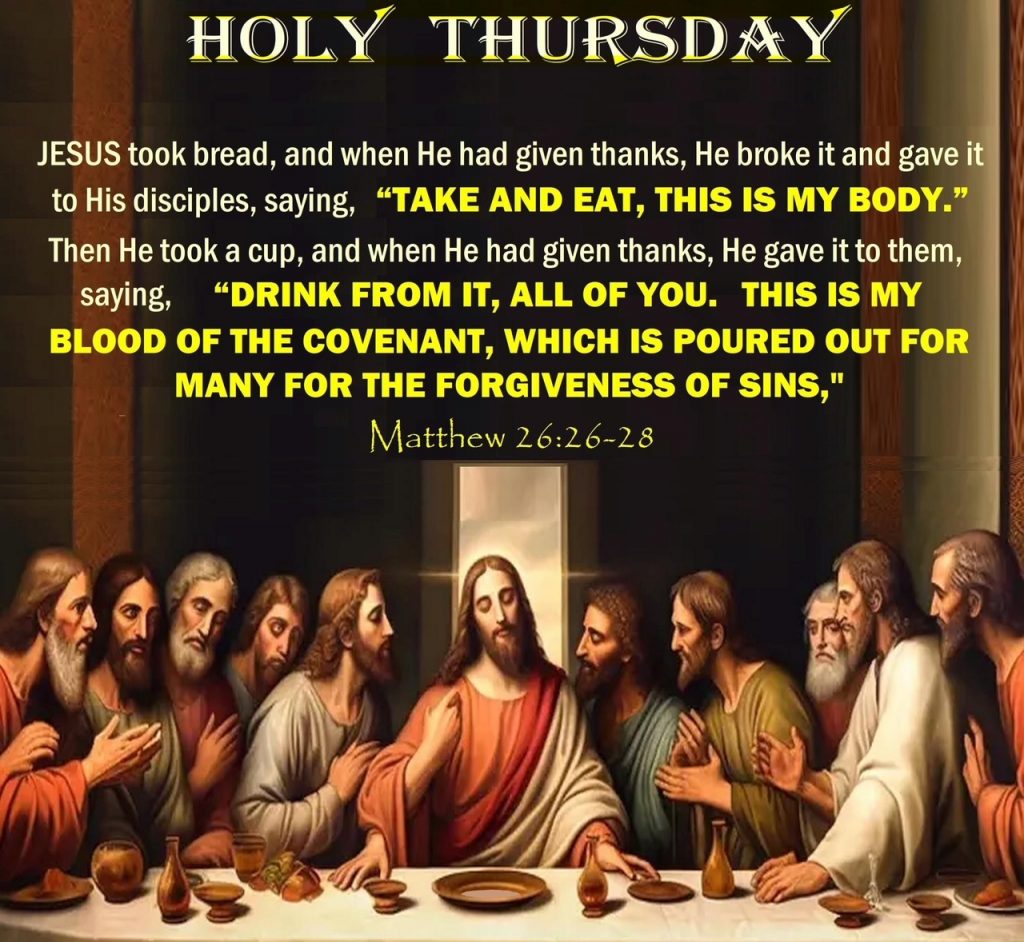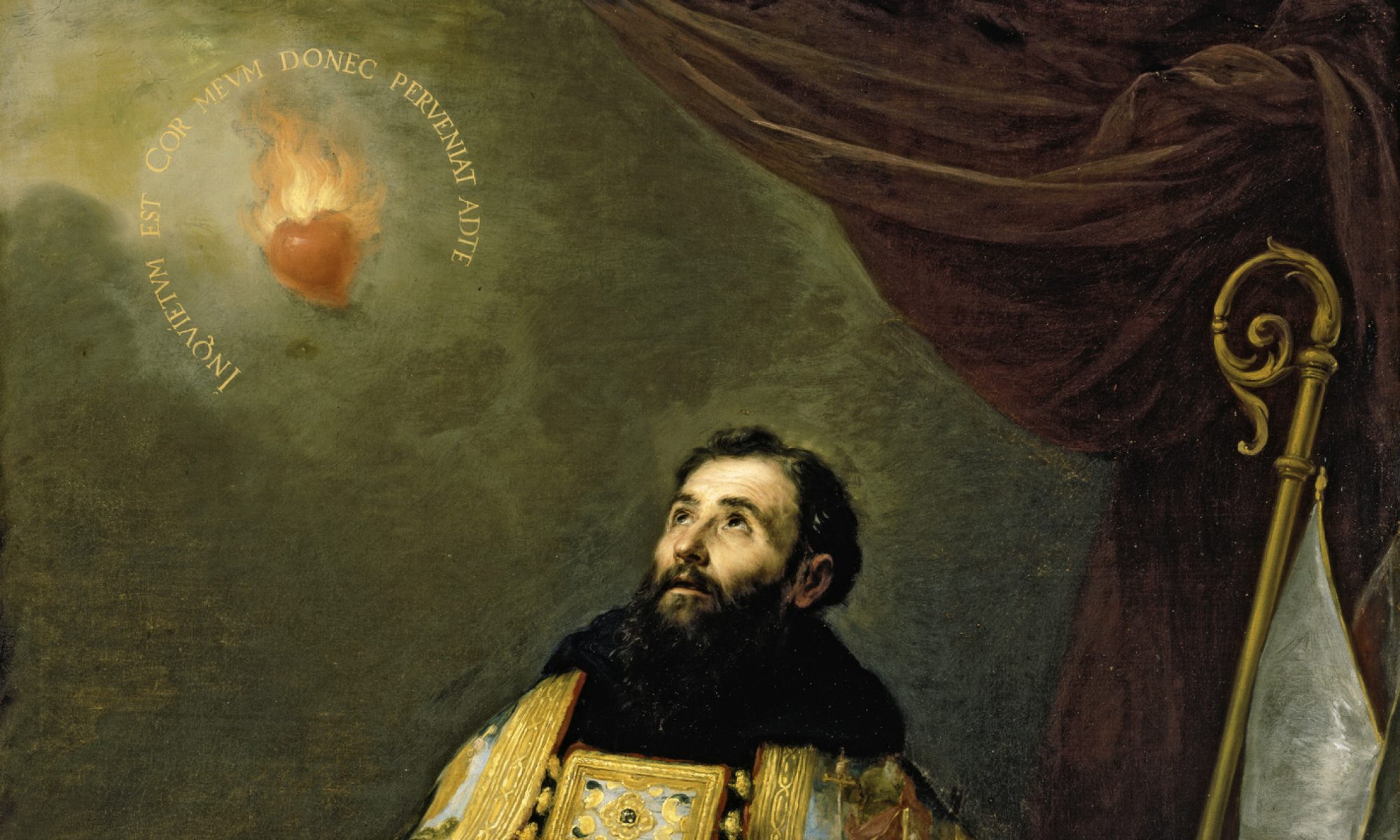Today, we begin the “Sacrum Triduum” which means three holy days before the celebration of Easter. All over the world the Church normally celebrates in the morning a solemn mass in all dioceses commonly called the “Chrism Mass” with the local bishop presiding at the Blessing of Sacred Oils and the Renewal of the Priestly Promises. This has been a normal activity for Holy Thursday morning. Some dioceses, because of distance, hold the Chrism Mass a week in advance. What are the significant reasons which liturgically connect this Holy Chrism Mass with the local bishops and with the presence of both the diocesan and religious priests.
The word “Chrism” is an oil with aromatic odor signifying the sweetness and the odor of Christ. The blessing of three oils, namely, the Oil of Catechumen, Oil of the Sick and Oil of Chrism are sacramental signs and symbols for anointing at life’s important events recognizing the presence of God who embraces us when we receive the Sacraments of Baptism, Confirmation, Anointing of the Sick, and Holy Orders. We need to understand that by virtue of our baptism, we are all anointed to be a Priest, King, and Prophet, for we all share in the same commitment and calling as disciples of the Lord. We were anointed to carry on all that we have been taught as His disciples in whatever path we choose, for the Spirit of the Lord is upon us because we have been anointed. However, in the Church, we have the so called “Ministerial Priesthood” which the Lord has called all those bathed in Him in Baptism to respond to a special ministry of service to give their lives fully to Him and to His Church, but only few are willing to commit to this vocation. We call them priests of the church whose lives are completely shared, broken, and committed to a loving service and sacrifice. This Chrism Mass event is the time of renewal of our Priestly vows and appreciation for the gift of the Priesthood that we, the priests, all receive from Jesus.
In tonight’s’ three readings, the focus is on the Eucharist which is instituted during the “Last Supper” of our Lord. Holy Thursday reminds us of Jesus celebrating with His disciples all about the past. When the chosen people journeyed with Moses, they endured through their struggles because God had been so faithful to be with them in their flight. Passover of the past was a celebration when faithful Jews recalled how Yahweh saved them from slavery and led them through the desert to their promised land. This time, Jesus is setting a scene of a new Passover meal for them, a new covenant of sharing His Body and Blood before He died. That event prefigures what Jesus is about to do for us all in this paschal mystery of salvation we are celebrating. St. Paul, in his letter to the Corinthians, wants us to cherish in our hearts and minds that Jesus’ words, being spoken for the first time during the last supper with the apostles, fill us with gratitude and reverence.
However, I am wondering why in the gospel today from John 13:1-15, our attention is drawn to reflect Jesus washing the feet of His disciples when He formally prepares and celebrates the Passover meal which is the institution of the Sacrament of the Holy Eucharist? This is something on which we must meditate that by giving Jesus’ Body and Blood for our physical and spiritual nourishment, we also need to value the giving of His very Self to manifest His humility and total service. A teaching moment of washing their feet before the meal is what St. Paul refers to in Philippians 2:5 that we should imitate our messiah who did not depend on his divinity, but came among us as a servant, even to the point of dying on the cross. Jesus, being the host, teaches His disciples and all of us that we need to serve others and not use our power and authority to lord it over them. It was only after this humble service of Jesus before the meal that Jesus then instituted the Sacrament of the Eucharist which is the sacrament of life, love and perpetual presence of Jesus with us.
Jesus says, “Unless I wash you, you will have no inheritance with me.” Jesus must do the washing of their feet because Jesus’ love for his disciples humbles them. Why is Peter so reluctant to have his feet washed? Why does he resist? The other disciples waited, maybe a little awkwardly, while their Master, Jesus, stripped off his outer cloak and knelt on the floor. Jesus took their feet gently into his hands, and after a loving look, he washed them, drying them with the towel at his waist. Then he gets to reluctant Peter who later agrees and wants to include his head and his hands in the washing. Jesus response was “Whoever has bathed has no need except to have his feet washed, for he is clean all over, so you are clean, but not all.” It is true not all of us are clean. We are all sinners who need to be washed. Before partaking of His Body and Blood, we must take away our fears, unforgiveness, doubts and weaknesses and accept our willingness to die for all things that separate us from the Lord. Jesus offers life which conquers all death in Him who has promised new life for all eternity. We are invited to eat His flesh and drink His blood, to be cleansed and to be renewed.
What makes any of us pull back our feet when it comes to accepting the responsibility of being a follower of Jesus? Jesus is clear in his message: If I have washed your feet, you ought to wash one another’s feet.
Tonight, we take part in the memorial ritual of the washing of the feet. A potentially humbling experience for all concerned. Am I called to wash another’s feet or to allow another to wash my feet? Can I allow the presence of Jesus to come in order to touch my life? Yet Jesus insists. Jesus’ love humbles me. Let us share His story and do what He has done with care in service to others. Christ’s way is the only way. We are grateful for God’s loving fidelity.
God bless you.
Fr. Arlon, osa

